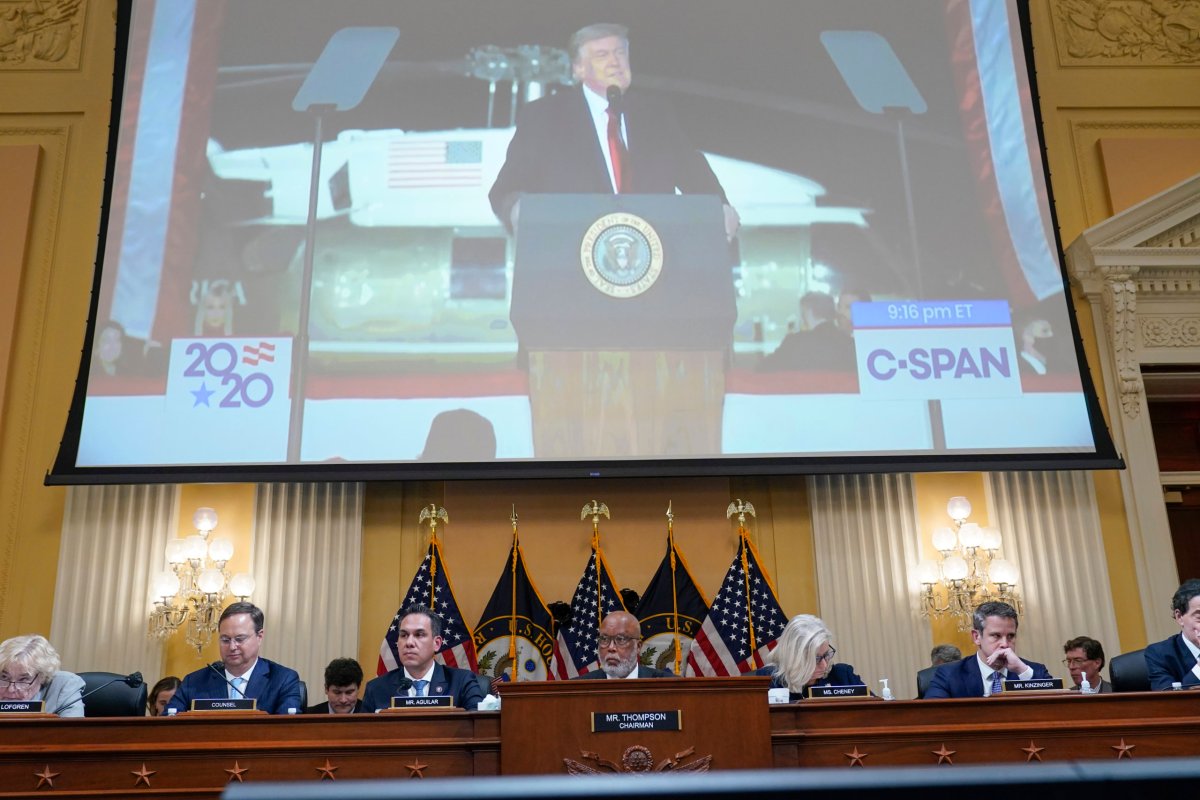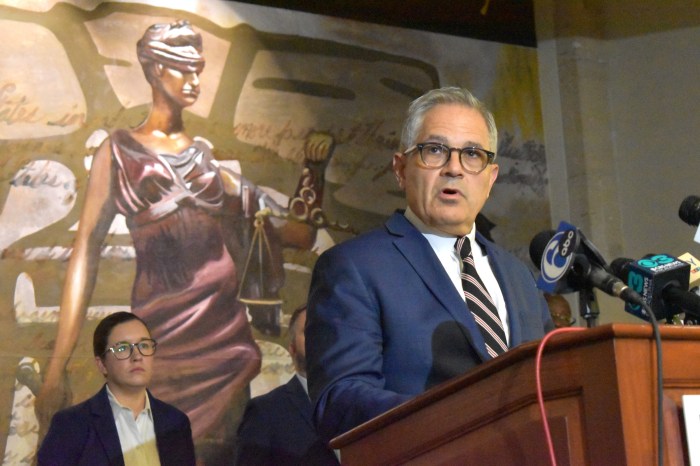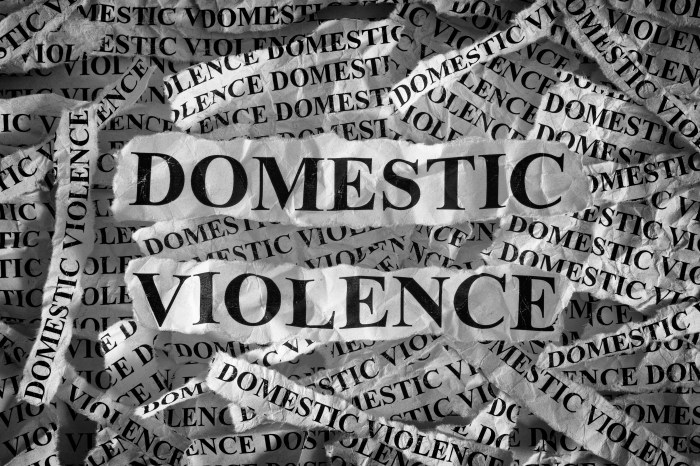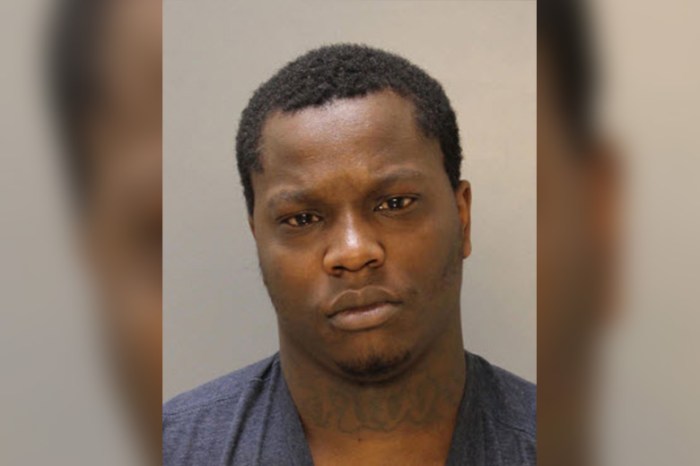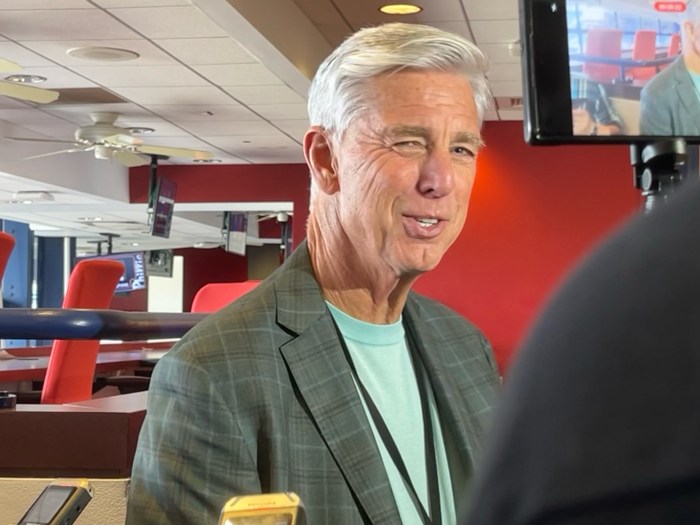By MARY CLARE JALONICK, ERIC TUCKER and KEVIN FREKING Associated Press
The House committee investigating the insurrection at the Capitol on Jan. 6, 2021, focused at a public hearing Thursday on the pressure that then-President Donald Trump put on his vice president, Mike Pence, to delay or reject the certification of Joe Biden’s election victory. The committee tried to show how that pressure incited an angry mob to lay siege to the Capitol.
Pence, presiding over the certification in the vice president’s traditional ceremonial role, did not give in. He declared Biden the next president early the next morning, after the congressional session resumed and the rioters were cleared. Lawmakers on the nine-member panel, and the witnesses who testified at the hearing, all described Pence’s decision as having averted a constitutional crisis.
Takeaways from the hearing:
A VICE PRESIDENT UNDER PRESSURE…
Greg Jacob, a counsel to Pence who fended off pressure to carry out the plan, said in live testimony at the hearing that the vice president first summoned him to his West Wing office in early December 2020 to seek clarity about his role in the certification of election results.
But Jacob said that it became clear to the vice president that the founding fathers did not intend to empower any one person, including someone running for office, to affect the election results.
“And our review of text, history — and frankly, just common sense — all confirm the vice president’s first instinct on that point, there is no justifiable basis to conclude that the vice president has that kind of authority,” Jacob said.
But in the coming weeks, the committee laid out, Pence would come under pressure to invalidate Biden’s win and find a way to keep Trump in power. While many White House aides made clear that they didn’t agree with the scheme, a conservative law professor named John Eastman increasingly had the ear of Trump. He wrote multiple memos suggesting Pence could reject electors or simply declare Trump the winner.
… AND IN DANGER
In video testimony, Pence’s former chief of staff, Marc Short, said that the vice president told Trump “many times” that Pence did not agree with the scheme. But Trump kept the pressure on anyway.
On the morning of Jan. 6, as Pence issued a public statement making clear that he would certify the legitimate results of the election, Trump told thousands of his supporters in front of the White House that he hoped Pence would reconsider. The committee showed video from that rally in which Trump said that if Pence doesn’t come through, “I won’t like him as much.”
During and after the speech, Trump’s supporters – hundreds of whom were now marching to the Capitol – focused on Pence. The panel showed video of the rioters threatening violence toward the vice president if and when he declined to stop Biden’s victory.
In one video, a Trump supporter said he had heard reports that Pence had “caved,” and if he did they were going to drag “politicians through the streets.” As Pence evacuated the Senate and hid in the Capitol, rioters in front of the building chanted “bring him out!” A fake guillotine was constructed on the National Mall, and people breaking into the building chanted “Hang Mike Pence! Hang Mike Pence!”
Mississippi Rep. Bennie Thompson, the chairman of the panel, said that when Mike Pence made it clear that he wouldn’t give in to Donald Trump’s scheme, “Donald Trump turned the mob on him.”
WHO IS JOHN EASTMAN?
As Eastman gained the president’s favor, several White House aides distrusted him and grew increasingly concerned about the possible ramifications of what he was proposing. But Trump did not listen to their advice.
The committee played videotaped testimony from Eric Herschmann, a lawyer advising Trump, expressing incredulity at Eastman’s legal theory that a vice president could overturn an election. “Are you out of your effing mind?” Herschmann said to Eastman as he recounted to the committee in recorded testimony.
Herschmann said he warned Eastman that, “you’re going to cause riots in the streets,” but that the professor dismissively said something to the effect of “there’s been violence in the history of our country to protect the democracy or protect the republic.”
In separate video testimony, Trump campaign aide Jason Miller said other aides had told him they thought Eastman “was crazy.”
Jacob said that even Eastman didn’t appear to believe his own wild theories. “He said, ‘Absolutely, Al Gore did not have a basis to do it in 2000. Kamala Harris shouldn’t be able to do it in 2024 but I think you should do it today,'” Jacob recounted of one conversation with Eastman.
Eastman was subpoenaed by the committee, but repeatedly invoked his Fifth Amendment rights during his interview. He has also sued to block the panel from obtaining his communications during that time.
Associated Press writers Lisa Mascaro and Farnoush Amiri contributed to this report.



